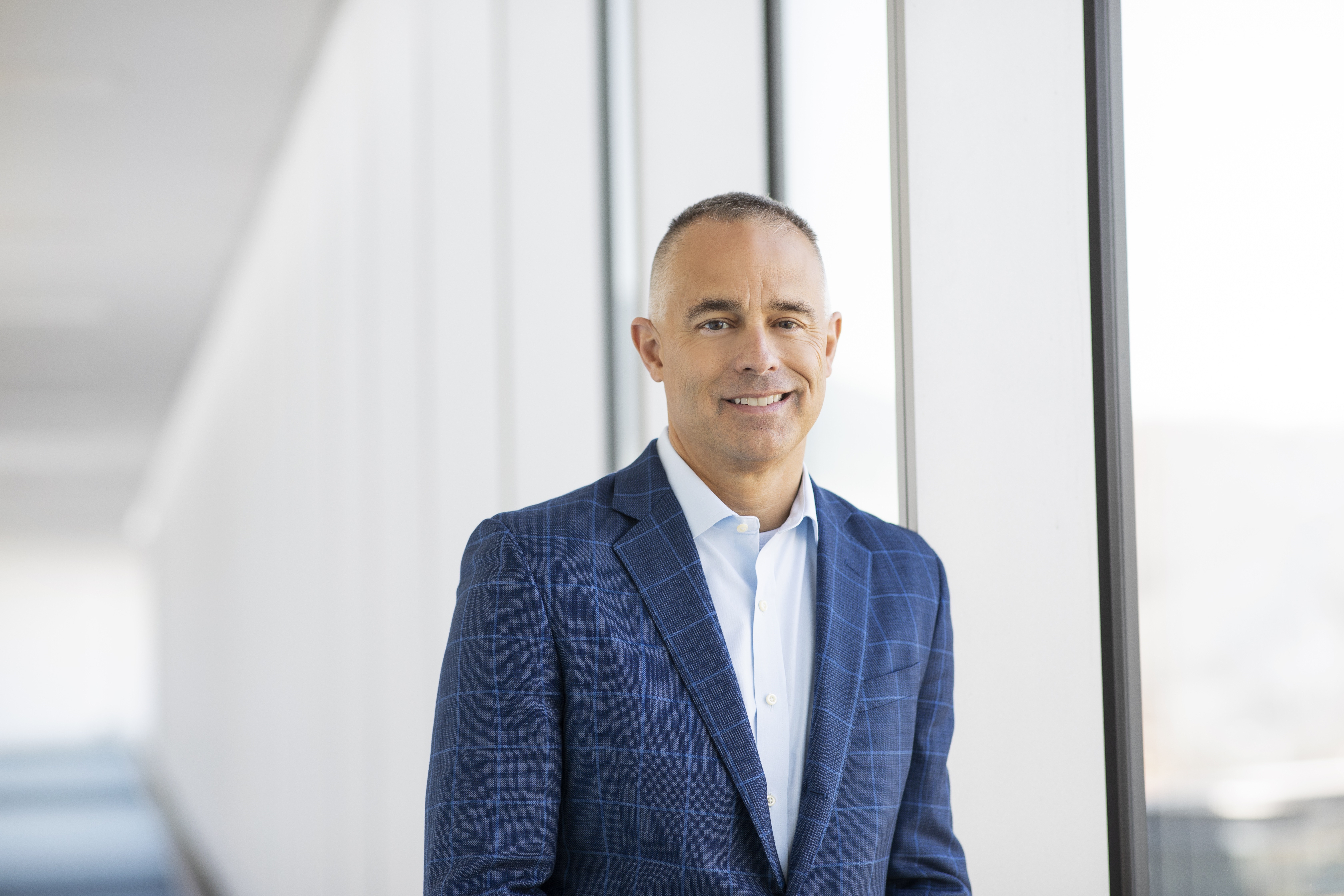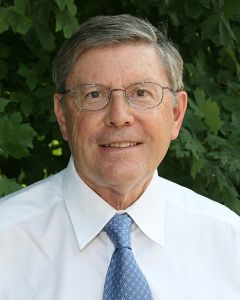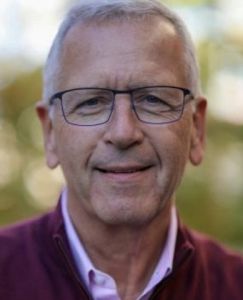From UNC to Eastman’s R&D Leader: How a Chemist’s Humanity Became His Greatest Strength

A multisport athlete growing up, Chris Killian, who holds a Ph.D. in chemistry from UNC-Chapel Hill, credits football, baseball and track with instilling in him a deep respect for teamwork and interdependence. He’s carried that ethos into the executive suite at Eastman, where he champions collaboration over command, development over directives.
May 22, 2025 I By Dave DeFusco
Chris Killian’s story isn’t about a linear climb to the top of a Fortune 500 company. It’s about staying grounded while rising through the ranks—from research chemist to Eastman’s C-Suite. It’s about a scientist and R&D Group Leader who bet his early career on a small team of scientists and a nascent idea to develop a new to the world polymer and stayed with it long past when conventional wisdom might’ve urged a career pivot. It’s about choosing authenticity over authority, vulnerability over bravado. And it’s about the quiet and confident clarity that comes from overcoming a serious illness and getting a second chance at living a full life.
“I am who I am,” said Killian, who holds a Ph.D. in chemistry from UNC-Chapel Hill and is senior vice president and chief technology and sustainability officer at Eastman chemical company. “Whether I’m talking to the CEO or someone on the shop floor.”
At 48, after decades of managing a slow, silent illness, Killian received a life-saving kidney transplant from a statistically improbable match: his wife, whose kidney turned out to be as compatible as a sibling’s. The gift didn’t just save his life—it reshaped his understanding of what it means to lead.
Killian’s pivotal moment came early, between 2001 and 2007, when he embraced a quiet rebellion disguised as a research project. A brilliant chemist in another group was pursuing a novel high-temperature polymer that didn’t fit his group’s mission. That chemist was reassigned to Killian’s team—and with him came the bold idea of what would become Eastman’s Tritan™ copolyester, a sustainable plastic and now a flagship product.
“It wasn’t branded yet. It was an early-stage exploratory research project,” said Killian. “But we nurtured it in my lab and eventually brought it into the business.”
That long-odds project eventually became the fastest-growing polymer launch in 50 years, generating hundreds of millions of dollars annually. But it didn’t just make money—it shaped Killian as an innovation leader. He stayed with the project from lab to successful commercial launch, transitioning with it from technical incubation to commercial integration.
“Being a part of bringing something new to the world in partnership with hundreds of Eastman men and women is one of my proudest moments,” he said. “There were times I wondered if I was moving fast enough in my career, but I was doing something I loved. I stuck with it. And it taught me everything—business, marketing, leadership and the conditions required for innovation success.”
This wasn’t just a project. It was his crucible. Today, Killian leads a division of 1,500, but he’s quick to note that leadership isn’t about hierarchy or spotlight.
“If you focus too much on self-promotion, you lose the ability to harness the power of the organization,” he said. “No matter how talented you are, you’re not more talented than the hundred people I was leading in 2007—or the 1,500 I’m leading now.”

Killian said his career has been greatly influenced by two former UNC chemistry professors, Maurice Brookhart and Joseph DeSimone. In Brookhart’s lab, Killian researched nickel and palladium catalysts for olefin polymerization, which attracted industrial sponsorship and collaboration and taught him the importance of combining fundamental science and practical application.
He said Professor Brookhart had an “indelible impact” on him by demonstrating the importance of collaboration and collegiality, and Professor DeSimone taught him to believe in himself, while sparking his interest in business and entrepreneurship.
“I would not have accomplished the things I have without UNC Chemistry and these two men,” said Killian. “These critical influences have shaped my career and the way I lead Eastman R&D.”

A multisport athlete growing up, Killian credits football, baseball and track with instilling in him a deep respect for teamwork and interdependence. He’s carried that ethos into the executive suite, where he champions collaboration over command, development over directives.
“The job is to motivate, to unlock what others can do,” he said. “You do that by focusing on them—their goals, their growth, how they can have the greatest impact on the company—not your own résumé or recognition.”
In a corporate world that often rewards polished facades and confident certainty, Killian leads with something more disarming: honesty. “Vulnerability is being real. It’s saying, ‘I made a mistake.’ It’s asking for help. It’s being human,” he said. “When I mess up with my kids, I own it. That carries over into work.”
Killian doesn’t just model vulnerability, he expects it. And he believes it’s more necessary than ever in a complex, high-pressure corporate environment. “When you’re vulnerable, people trust you more,” he said. “And when they trust you, they follow you—not out of obligation, but because they believe in the journey.”
Killian’s journey took an irreversible turn in 2018, when he received his kidney transplant. He had known for years it would be necessary. A bout of strep throat at 16 had triggered an autoimmune condition—IgA nephropathy—that slowly destroyed his kidneys. But the timing was unknowable. “Some people need a transplant five years in. Others last 45. I fell somewhere in between.”
For years, he compartmentalized the disease, but when the moment finally came, and his wife turned out to be a one-in-100,000 match, the experience recalibrated his entire outlook.
“You wouldn’t be talking to me today without God’s grace and her love,” he said. “It made me grateful in ways I can’t describe. It made me see what really matters.”
The experience amplified his vulnerability—and deepened his authenticity. “I used to resist acknowledging my weaknesses. I didn’t want to ask for help,” he said. “But going through something like that, you realize how much strength there is in being human.”
With nearly three decades at Eastman, Killian’s still learning what it takes to build resilient, high-performing teams across both science and business. But one principle guides him: hire for talent, not just expertise. Skills can be learned. But raw capability, drive, curiosity—that’s what you can build a company on. He emphasizes intentional investment in people.
“If people feel like they’re growing, like someone cares enough to invest in them—they’ll stay,” he said. “People most often leave leaders not companies.”
And what of the scientists and engineers working under him today? “I want them to be better than me,” he said. “I want them to surpass me. That’s the legacy.”

